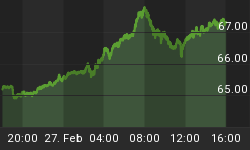Yesterday, Federal Reserve official William Dudley had some harsh words for Wall Street banks, sort of calling them criminals, among other things:
New York Fed Chief Levels Explosive Charge Against Big Banks
The head of the Federal Reserve Bank of New York said Thursday that some of America's largest financial institutions appear to lack respect for the law, a potentially explosive charge against an industry already roiling from numerous government investigations into alleged wrongdoing.William Dudley, one of the nation's top banking regulators whose organization helps oversee Wall Street banks including JPMorgan Chase and Citigroup, made the commentduring a speech focused on the problems posed by banks perceived to be "too big to fail," and possible solutions to correct them.
But in an abrupt turn, Dudley suggested that regulators may be stymied by "cultural" issues that have negatively affected the nation's biggest banks.
"Collectively, these enhancements to our current regime may not solve another important problem evident within some large financial institutions -- the apparent lack of respect for law, regulation and the public trust," he said.
"There is evidence of deep-seated cultural and ethical failures at many large financial institutions," he continued. "Whether this is due to size and complexity, bad incentives, or some other issues is difficult to judge, but it is another critical problem that needs to be addressed."
Dudley's comments come as the world's biggest banks collectively face tens of billions of dollars in potential fines and government-driven settlements arising from alleged lawbreaking in markets ranging from home mortgages to interest rates and currencies.
This sounds serious, until you find out a couple of things:
1) The Federal Reserve is not part of the government. It is owned by the big banks it "regulates." This sweetheart deal dates back to the formation of the Fed in 1913, when a secretive group of bankers and their pet politicians set themselves up with, get this, a monopoly on issuing new currency. The Fed finances itself by printing dollars, using them to buy bonds from banks (at a nice profit for the banks) and then collecting the interest the bonds generate. This is as close as it gets to a financial perpetual motion machine. And it has worked brilliantly, to the point that most people actually think the Fed is a branch of the government and Fed officials work for taxpayers rather than the banks that own them.
2) William Dudley, the "regulator" who is criticizing the banks, was Goldman Sachs' chief economist from 1986 to 2007. By working for the Fed, he is still effectively an employee of the Fed's owners, which is to say he never actually left his job at Goldman; he just moved to a new division.
So why bite the hand that feeds him? He wouldn't unless he's part of a cleverly-staged bit of theater tying nicely into the investigations now underway of big banks' manipulation of the mortgage, energy, interest rate, foreign exchange - ok, of all the markets. The fact that the fines being levied sound huge but are mere fractions of what the banks make from these activities and that none of the bankers themselves are being convicted, let alone imprisoned, impoverished or even named, implies that the banks recognize that their behavior has become blatant enough to make the government look bad. So they've devised a PR strategy to make the regulators seem awake and the banks contrite. Having Dudley publicly criticize them is just another piece of that charm offensive.
Definitive proof that this is true will come in a few years when the Justice Department investigators and Fed officials who are now hassling the banks are rewarded by those same banks with corner offices at JP Morgan Chase or Citigroup - with pay packages orders of magnitude higher than what they get now for their "public service."















